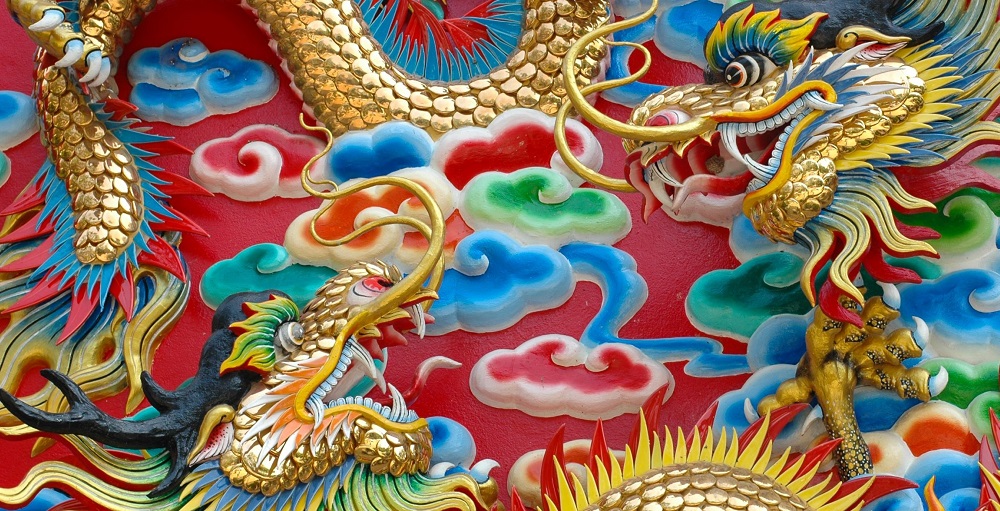Chinese public holidays

What better time than the local public holidays to promote your business and put your brand in the spotlight?

With the Chinese economy returning to growth after the temporary dip due to the pandemic, with a +1.9% expected by the end of 2020, Italian companies looking for new horizons for expansion can only look to the East. What better time than the local public holidays to promote your business and put your brand in the spotlight?
In order to organize an adequate branding strategy capable of achieving ambitious goals, you first need to know the Chinese holiday’s calendar and its most important dates, so as to channel investments and ideas on the right events.
From the Chinese New Year to the Golden Week
Here is a quick guide to the most eagerly-awaited holidays in the country of the Great Wall, in strict chronological order.
Chinese New Year
Between 21 January and 20 February.
It’s the most important traditional festivity in China, where families and loved ones come together to create exclusive moments in a homely atmosphere with a big traditional dinner, fiery red decorations and relatives and friends exchanging gifts.There is no shortage of offerings to divinities and ancestors, as a way of cleansing the house (and the soul) from the dirt of the previous year to make room for the happiness and good fortune of the new one. A marketing opportunity and the right festivity to boost sales.
Lantern Festival
Fifteenth day of the new year
It marks the official end of the Chinese New Year celebrations. The traditional decorations are removed and the first signs of spring are celebrated with the release in the sky of the typical paper lanterns, a symbol of new light and good omen for the seasons to come.An opportunity not to be missed for all companies that want to align their communication with the sentiments and customs of the Chinese public.
Mother’s Day
Second Sunday of May
Introduced into the People’s Republic calendar in 1979, it’s one of the few foreign holidays adopted in China and it immediately became a commercial event.Chinese e-commerce companies, in particular, tend to offer discounts and special offers on items to gift to mothers, to whom a particular flower is also dedicated – the tiger lily, in an imported holiday that is however very much felt by the local population.
Mid-Autumn Festival
Fifteenth day of the eighth month of the year
It’s one of the most deeply felt traditional celebrations in China and East Asia. Also known as the Moon Festival, it gathers relatives and friends for three days of domestic celebrations and not only, in which partakers exchange the typical moon cakes.A date not to be missed for branding activities aimed at capturing the imagination of the Chinese public.
Golden Week
1 October of each year
The national holiday commemorates the founding of the People’s Republic of China and is, together with the New Year, the most important celebration of the Chinese calendar. In fact, it marks the start of a seven-day holiday period for workers and students, allowing everyone to travel around the country and reunite with their families. It’s the central event for local tourism and for all those activities involving the Ho.Re.Ca. sector.
Chinese e-commerce initiatives
China, though, is not just history and tradition. Innovation, technology and trade have led to the adoption of new holidays which are the ideal appointments for all Italian companies who want to try to conquer their own market segment in China.
Double Eleven
11 November
This is Singles’ Day, the celebration of bachelors and the shopping holiday par excellence, initiated by Alibaba’s founder (Jack Ma) in 2009 and that has quickly become an opportunity not to be missed for purchases at discounted prices and for gifts among friends (with sales almost triple those of the western Black Friday).
Double Twelve
12 December
Also this initiative was born from an idea of Alibaba, which literally invented this winter sales bonanza in 2011, quickly emulated by all the most important Chinese marketplaces and capable of involving hundreds of millions of consumers and becoming a sort of online shopping festival.
Christmas
25 December
Is Christmas celebrated in China? Yes, for some years now. It was imported from Europe as a purely commercial operation by dedicated marketplaces and accompanied by themed decorations, shopping trips in malls and dinners with friends in restaurants in the most important cities.
A strategic approach to promote branding in China
The Chinese calendar provides therefore many opportunities for telling about your business, promote your products and get closer to local consumers.However, in order not to produce impromptu efforts, there is the need to implement a medium-long-term strategy that first organizes the corporate online presence on the right channels and enhances the brand identity, to be then ready on special occasions with communication strategies and advertising campaigns on specific targets.
How can you prepare for this?
- Develop an efficient website with great attention to the user experience, with contents in Chinese and a local internet domain.
- Structure your presence on Chinese marketplaces according to the needs, choosing the most suitable online store.
- Develop a communication appropriate to the styles and tones of the Chinese public, integrating it at the suitable time with initiatives related to the individual festivities.
And then add that touch typical of the made in Italy creativity and warmth that can still make a difference, even in China.
(edited by Digital Retex, Retex Group)






